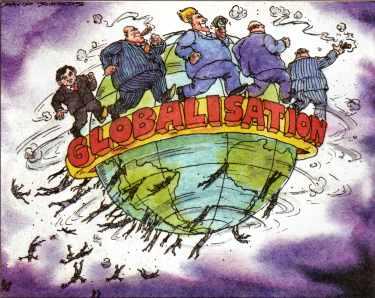The study, which drew on discussions about development aid, re-evaluated the various presumptions that determine public opinion and policies on aid. This research was conducted by Dimitri Van den Meerssche and Franklin Cudjoe, who is a founding director of IMANI.
The morality of development aid was a central issue. They argue that while in popular discourse politicians, economists and rock stars juggle terms as “justice” and “moral obligation” in support of development aid for economically under-developed communities, the overwhelming failures of aid itself echoed a more underlying chasm rife with real socio-economic disappointment for the poor.
Only rational thought and intellect can be instrumental in harnessing the required policy implementation necessary for eradicating poverty. Fundamentally, economic or social issues have never been solved properly through the census of the populace, or through a media-fed political bias.
A theoretical framework that conceptualizes human suffering and promotes a deeper intellectual curiosity to finding a moral obligation to ease the plight of the poor is invariably the way forward. The capability approach of AMARTYA SEN offers an alternative framework to analyze the problem of poverty – a problem of insufficient freedom in achieving basic goals and fulfilling basic needs.
The writers argue that there is no single philosophical justification of fighting poverty as a quantifiable sum of economic aggregates. It is only in giving people access to their basic capabilities that development aid finds a moral meaning.
This conclusion urges a measure of poverty without using economic aggregates and seeks a more concise approach towards bettering lives without the big out-of-pocket taxpayer plans for development. Such plans only try to achieve visceral quantifiable goals as “sustainable economic growth” or “general poverty reduction” to the admiration of a voting block.
The theoretical framework offered explains that only through free economic interactions, the free enterprise system, can a community or country convert the immense amount of dispersed knowledge into morally justifiable and beneficial economic interactions that is coordinated by a price mechanism. Development aid can only increase the output of any specific chain of production when it increases the inputs of this chain.
In achieving greater economic efficiency, however, the big plans of development are doomed to fail since they do not succeed in tapping into the dispersed knowledge that is essential for any efficient chain of interactions in an economy.
Further, development plans and their concomitant spending lack any feedback mechanism for quality control and they tend to distort the price mechanism that is crucial for economic coordination.
The relationship between development aid and corruption cannot be overlooked. The researchers argue that since Democracy is probably the best political institution and perhaps the only one that offers the possibility of feedback loops on the provision of public goods and the free market it plays a vital in ensuring efficiency in a free market economy.
However, democratization can be hampered by an economic situation built on the reclamation of natural resources and by a social institution built atop a mountain of illiteracy and severe segmented inequality.
Hence the large transfers of development aid have worsened the democratic states of Africa. Aid is a disincentive towards democratization in the same way natural resources do: they give an immense income to the economic and political elite, which they rarely distribute equitably.
Aid also removs the feedback mechanism of democracy, by erasing the financial leverage (in the form of tax revenues) of the people towards their government.
Further, aid creates a disincentive for governments to educate their people, since a higher level of education would increase the democratic desires and endanger the rent-seeking position of the political African elite.
Development aid has not only erased the feedback mechanism between the government and its people, but it has also removed or failed to implement and enforce measures towards accountability.
Which way forward?
Abandon all “big plans” for development. The mechanisms of development aid should be decentralized and taken out of the hands of governments.
The financing of these initiatives should comply with these requirements. This is the only valuable way of delivering marginal improvements to the lives of the poor. This is all aid will ever be able to achieve.
For all the rest we should put our hope and trust in the fairness and creativity of free people – the free market!










